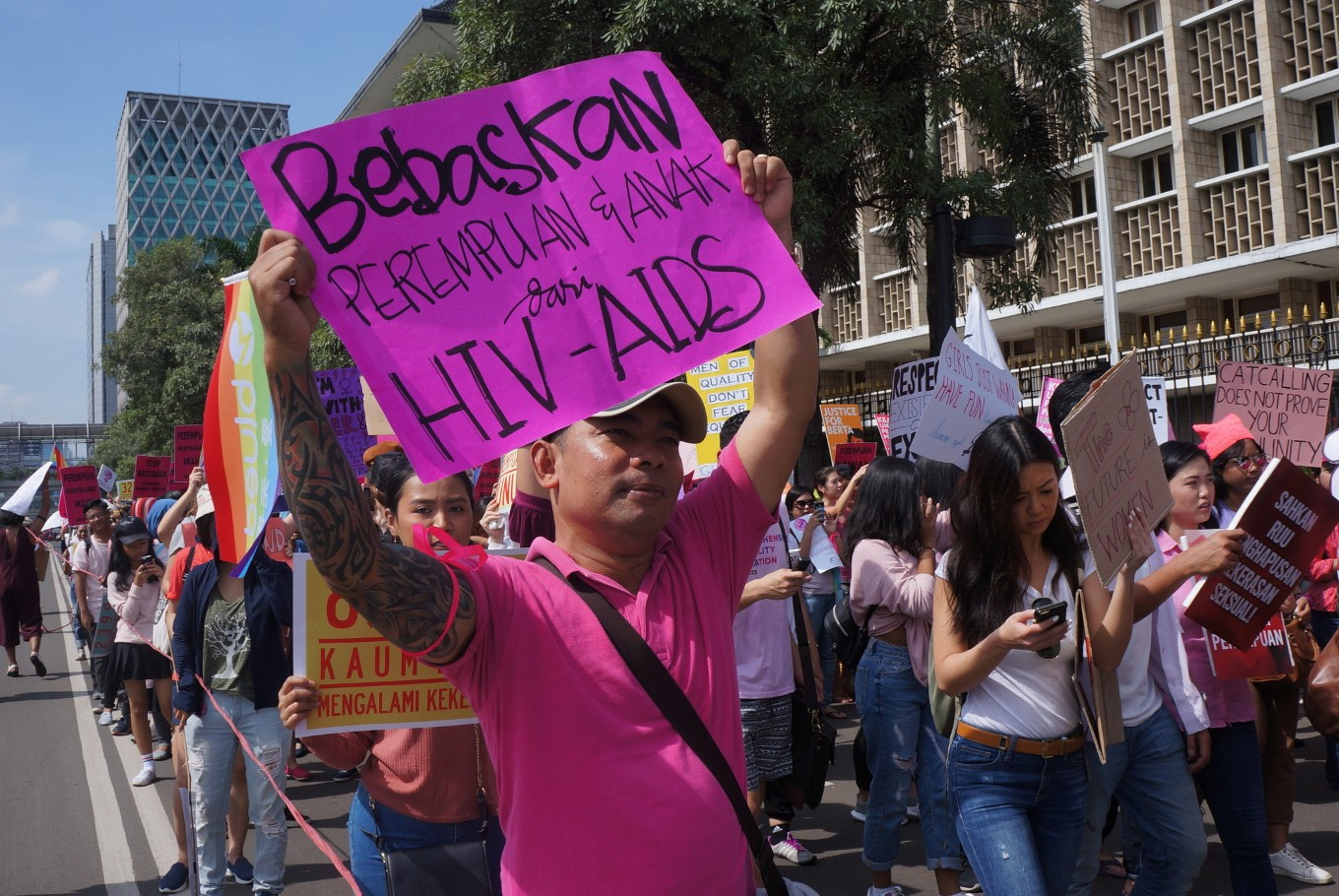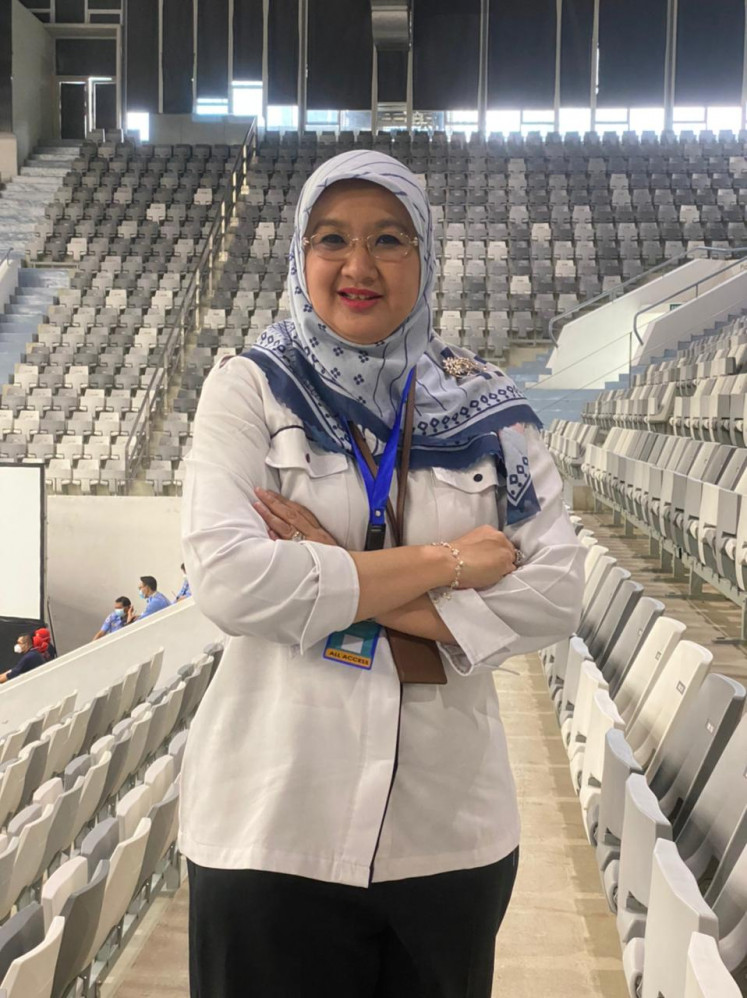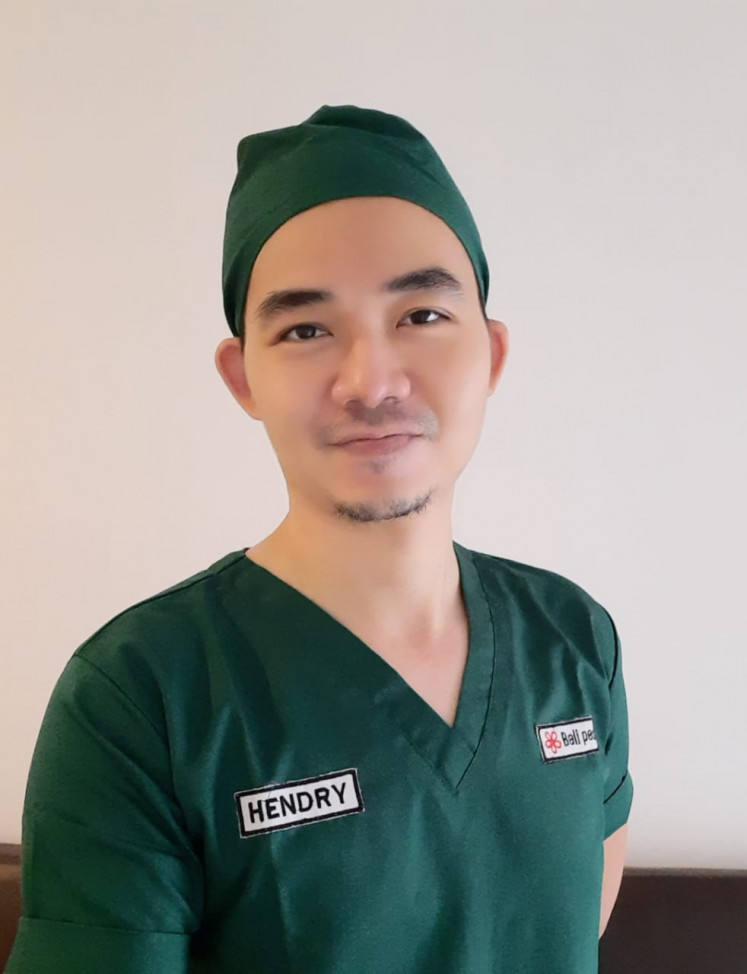Popular Reads
Top Results
Can't find what you're looking for?
View all search resultsPopular Reads
Top Results
Can't find what you're looking for?
View all search resultsBetter late than never: Indonesia readies HIV prevention drug PrEP
Amid the still-lingering stigma against HIV/AIDS patients, Indonesia aims to introduce an HIV prevention drug, known as PrEP, in a pilot project in selected cities later this year.
Change text size
Gift Premium Articles
to Anyone
Thirty-three-year-old Sandy was diagnosed with HIV on Aug. 26, 2019.
Married with one daughter, who turns 4 years old this year, Sandy began receiving antiretroviral treatment (ART) three days after the diagnosis to suppress the virus in his body. For double protection, he wears condoms whenever he has sex with his wife.
“When our daughter was born, I was still HIV negative,” said Sandy, who asked to use a pseudonym to protect his privacy.
Sandy and his wife are an example of a serodiscordant couple – where one partner is living with HIV while the other one is not. The doctor suggested that they could start planning for another baby once his viral load status became undetectable.
“We want to have a second child – hopefully, a boy,” he said with a smile.
“We will be under close supervision from the doctors. I really don’t want to risk infecting my wife [and our baby].”
Sandy acknowledged that he is aware of preexposure prophylaxis (PrEP), medicine that can prevent people who are HIV-negative from getting the virus as long as taken as prescribed.
“If the doctor later suggests PrEP [to have a second child], we will do it,” he said.
As of now, PrEP is still not available in Indonesia. The medicine was approved by the United States Food and Drug Administration (FDA) under the brand name Truvada in 2012. Countries that have already approved PrEP as of 2018 included France, South Korea, Australia and Canada.
In Southeast Asia, only Thailand has made PrEP available to the public, since 2017.
Luckily, for Sandy, he and his wife won’t have to wait much longer.
In a recent interview with The Jakarta Post, the Health Ministry’s director for prevention and control of direct communicable diseases, Siti Nadia Tarmizi, confirmed that Indonesia planned to introduce PrEP later this year in a pilot project.
Indonesia is ready: The Health Ministry’s director for prevention and control of direct communicable diseases, Siti Nadia Tarmizi, confirmed that Indonesia plans to introduce PrEP later this year in a pilot project. (Personal collection/Courtesy of Siti Nadia Tarmizi)With support from the Global Fund to Fight AIDS, Tuberculosis and Malaria, PrEP will be made available in Jakarta, Bandung in West Java, Semarang in Central Java, Surabaya in East Java, Yogyakarta, Denpasar and Badung in Bali and Makassar in South Sulawesi.
The Global Fund will provide 25,000 bottles of PrEP and target 7,000 recipients. The number will be increased periodically in 2022 and 2023.
“PrEP will be free under this pilot project,” Nadia said.
Those who are considered high-risk of getting HIV will be eligible for the project, including gay men, trans women, female sex workers, injection drug users and serodiscordant couples – especially those who plan to have children, like Sandy and his wife.
When asked about the date for PrEP’s arrival, Nadia said the ministry was still waiting for the Global Fund’s confirmation.
“Perhaps September or October,” she said.
Stigma in every corner
Reynald, a 24-year-old project manager in Jakarta, got diagnosed with HIV two years ago. Three months into ART, he tried to obtain PrEP for his partner at the time.
“I read that in order to reach U=U, I had to continue taking medications for six months,” said Reynald, who preferred to use his first name only.
The phrase “U=U” or “Undetectable = Untransmittable”, refers to a condition where a person living with HIV continues ART and steadily has an undetectable viral load – and thus cannot transmit the virus to their partner.
The clinics, however, told Reynald that it would be difficult for him to get PrEP for his partner – much to his dismay.
“They told me that I could only order [PrEP] from a doctor in Bali or in Bangkok so they can deliver it to Jakarta. It would take a long time and it’s not cheap. Why would people with HIV who want to take precautions for their partners be given such a hard time?” he said, adding that PrEP was hard to find even in big cities.
In Bali, Agus, 38, became aware of PrEP in 2014 after an acquaintance from the US told him about it. Agus, who preferred to use his first name only, usually ordered PrEP from abroad when he was sexually active.
“But I know where to get PrEP here [in Bali]. The price is about the same,” he said.
Agus suggested that the stigma from the Health Ministry made it hard for PrEP to be more accessible in Indonesia.
“It’s the same argument people often have about condoms, that giving condoms means encouraging people to have free sex,” he said.
Currently, there are several clinics in Jakarta and Bali that import PrEP and make them available for purchase after medical screenings and HIV tests. However, a local online shopping website apparently sells Teno M, a brand of PrEP imported from Thailand, for Rp 1.35 million (US$93.11).
Nadia said the ministry was aware of the situation.
“This is very risky because every medication that is distributed in Indonesia should be registered, [otherwise it] can be harmful to its users,” she said.
United Nations Programme on HIV and AIDS (UNAIDS) prevention consultant Bagus Prabowo said in a separate interview that the country had already prepared a framework for the introduction of PrEP in 2017, but it was halted by stigma.
“The stigma toward PrEP comes from public officials and even NGOs,” he said.
Bagus said PrEP could be useful for those who were at a higher risk of getting HIV but could not use condoms for some reason, such as sex workers.
“Many sex workers cannot turn down clients who refuse to wear condoms due to the economy. PrEP can protect them,” he said.
The stigma toward HIV prevention programs is hardly a new thing in Indonesia. In 2012, Nafsiah Mboi, the health minister at the time, faced backlash — mostly from Muslim groups — after being accused of promoting the use of condoms among teenagers.
In 2013, Nafsiah publicly sparred with Prosperous Justice Party (PKS) lawmaker Wirianingsih after she suggested that HIV/AIDS patients should not be covered by the national healthcare program and “be punished” instead.
Nafsiah disagreed with Wirianingsih, arguing that the Constitution guaranteed health care for all Indonesian citizens. Wirianingsih later apologized.
According to the UN, only 26 percent of Indonesians living with HIV receive ART despite it being widely available for free. The proportion of Indonesians receiving ART is significantly lower than the global coverage of 87 percent.
Ayu Oktariani, an activist for the Indonesian Positive Women Network (IPPI), an organization that advocates for women with HIV, said she hoped PrEP would be introduced soon in Indonesia.
She expressed her concerns that PrEP was still associated with just gay men.
“[PrEP] as an HIV prevention treatment can be beneficial for heterosexual serodiscordant couples as well,” she said.
Hendry Luis, the executive director of the Bali Peduli Foundation said that in Bali, foreigners were usually more aware of PrEP than the locals. However, he remained optimistic that PrEP could be introduced to Indonesia.
Raising awareness: Physician Hendry Luis, the Bali Peduli Foundation's executive director, hopes the COVID-19 pandemic can also raise people's awareness about prevention treatments for other diseases, like PrEP for HIV. (Hendry Luis /Courtesy of Bali Peduli)“The pandemic makes many Indonesians more aware of the importance of disease prevention,” he said.
UNAIDS’ Bagus conceded that controversy would certainly arise once PrEP was officially introduced.
“We should always be prepared for controversy. However, we will keep going based on scientific evidence,” he said.













